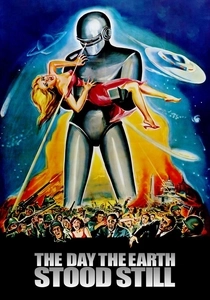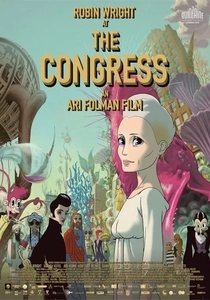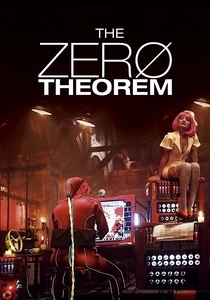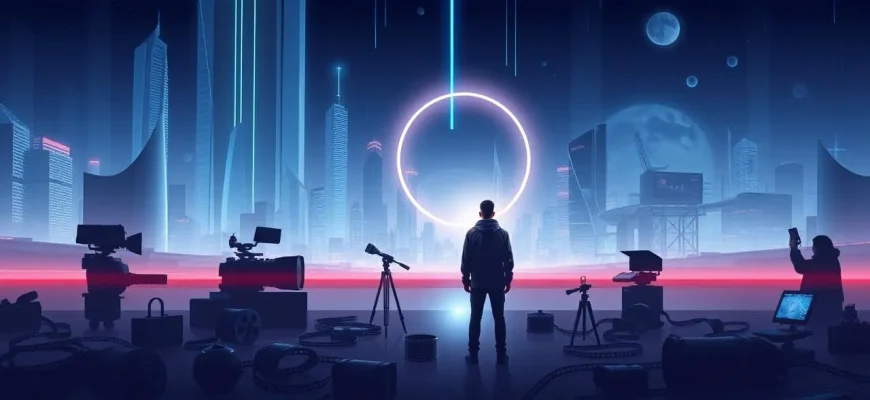Dive into the fascinating intersection of science fiction and the art of filmmaking with this curated list of 10 films. Each movie showcases the creative process of directors as they navigate futuristic worlds, time travel, and the very essence of storytelling. Whether you're a cinephile or a sci-fi enthusiast, these films offer a unique perspective on the craft of directing through a speculative lens.

The Day the Earth Stood Still (1951)
Description: This classic sci-fi film about an alien visitor and his robot companion can be seen as a director's vision of a world needing to change its ways, with the alien as the ultimate director of human destiny.
Fact: It was one of the first films to be listed on the National Film Registry for its cultural, historical, or aesthetic significance.
 Watch Now
Watch Now 
The Man Who Fell to Earth (1976)
Description: This film about an alien who comes to Earth in search of water for his dying planet can be seen as a metaphor for a director's journey to find inspiration and bring something new to the world of cinema.
Fact: David Bowie's performance as the alien was critically acclaimed, and the film has since become a cult classic.
 Watch Now
Watch Now 
Ed Wood (1994)
Description: Although not sci-fi, this biopic about the infamous director Ed Wood, known for his low-budget sci-fi films, offers a comedic yet heartfelt look at the passion and eccentricity of a filmmaker's life.
Fact: Johnny Depp's portrayal of Ed Wood earned him a Golden Globe nomination.
 Watch Now
Watch Now 
The Truman Show (1998)
Description: This film presents a world where a man's life is a TV show, controlled by a director. It's a meta-commentary on reality TV and the manipulation of narratives by those behind the camera.
Fact: The film was nominated for three Academy Awards, including Best Original Screenplay.
 Watch Now
Watch Now 
The Matrix (1999)
Description: While not directly about filmmakers, the Wachowskis' masterpiece delves into the nature of reality, which is akin to the creation of a film world. The directors themselves are like the architects of the Matrix, controlling the narrative and the characters' destinies.
Fact: The film's visual effects were groundbreaking, winning four Academy Awards.
 Watch Now
Watch Now 
The Imaginarium of Doctor Parnassus (2009)
Description: This film, directed by Terry Gilliam, explores the power of imagination through a traveling theatre troupe, where the director's role is to guide audiences through fantastical worlds.
Fact: After Heath Ledger's death, his role was completed by Johnny Depp, Jude Law, and Colin Farrell, each playing different versions of his character.
 Watch Now
Watch Now 
Inception (2010)
Description: Christopher Nolan's mind-bending film about dream manipulation can be seen as an allegory for the filmmaking process, where directors craft intricate worlds and narratives within the subconscious of their characters.
Fact: The film's dream sequences were inspired by Nolan's own dreams and his interest in lucid dreaming.
 Watch Now
Watch Now 
The Adjustment Bureau (2011)
Description: Here, a chance encounter with a mysterious woman leads a man to discover a secret organization that controls human destiny, including the fate of filmmakers. It's a thrilling exploration of free will versus predestination in the context of storytelling.
Fact: The film is loosely based on Philip K. Dick's short story "Adjustment Team."
 Watch Now
Watch Now 
The Congress (2013)
Description: This film blends animation with live-action to explore a future where actors sell their digital likenesses to studios, allowing directors to manipulate their performances in any way. It's a profound look at the loss of artistic control in the age of digital cinema.
Fact: The film is based on Stanislaw Lem's novel "The Futurological Congress," and it features Robin Wright playing a version of herself.
 Watch Now
Watch Now 
The Zero Theorem (2013)
Description: Terry Gilliam's film about a reclusive computer programmer searching for the meaning of life through a complex mathematical equation can be interpreted as a director's quest to find truth in his own narrative.
Fact: The film features a cameo by Gilliam himself as a doctor.
 Watch Now
Watch Now 








